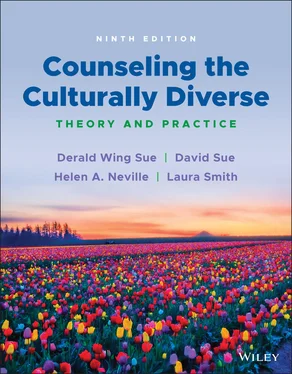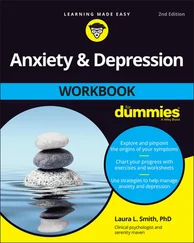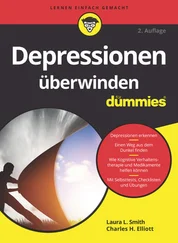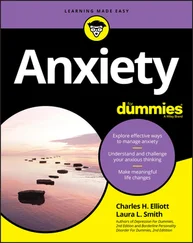Copyright © 2022, 2019, 2016, 2013, 2011, 2007, 2005, 2001, 1998 John Wiley & Sons, Inc. All rights reserved. No part of this publication may be reproduced, stored in a retrieval system, or transmitted in any form or by any means, electronic, mechanical, photocopying, recording, scanning or otherwise, except as permitted under Sections 107 or 108 of the 1976 United States Copyright Act, without either the prior written permission of the Publisher, or authorization through payment of the appropriate per‐copy fee to the Copyright Clearance Center, Inc., 222 Rosewood Drive, Danvers, MA 01923 (Web site: www.copyright.com). Requests to the Publisher for permission should be addressed to the Permissions Department, John Wiley & Sons, Inc., 111 River Street, Hoboken, NJ 07030‐5774, (201) 748‐6011, fax (201) 748‐6008, or online at: www.wiley.com/go/permissions.
ISBN: 978‐111‐9‐86190‐4 (PBK)
Library of Congress Cataloging‐in‐Publication Data
Names: Sue, Derald Wing, author. | Sue, David, author. | Neville, Helen A., author. | Smith, Laura, 1960‐ author. | John Wiley & Sons, publisher.
Title: Counseling the culturally diverse : theory and practice / Derald Wing Sue, David Sue, Helen A. Neville, Laura Smith.
Description: Ninth edition. | Hoboken, NJ : Wiley, [2022] | Includes index.
Identifiers: LCCN 2021059912 (print) | LCCN 2021059913 (ebook) | ISBN 9781119861904 (paperback) | ISBN 9781119861928 (adobe pdf) | ISBN 9781119861911 (epub)
Subjects: LCSH: Cross‐cultural counseling.
Classification: LCC BF636.7.C76 S85 2022 (print) | LCC BF636.7.C76 (ebook) | DDC 158.3—dc23/eng/20211217
LC record available at https://lccn.loc.gov/2021059912
LC ebook record available at https://lccn.loc.gov/2021059913
The inside back cover will contain printing identification and country of origin if omitted from this page. In addition, if the ISBN on the back cover differs from the ISBN on this page, the one on the back cover is correct.
For over four decades, Counseling the Culturally Diverse: Theory and Practice ( CCD ) has been considered the “gold standard” in culturally competent mental health care. Its cutting‐edge presentation of multicultural counseling and therapy (MCT) is used in an overwhelming majority of graduate training programs in counseling and clinical psychology, and it has produced generations of culturally sensitive mental health practitioners. It now forms the multicultural knowledge base of licensing and certification exams at both the masters and the doctoral levels in psychology. In 2021, Social Science Space identified the book as one of the most important works across social science disciplines that has contributed to the ongoing need to understand, analyze, resist, and dismantle racism, bias, and bigotry. In essence, CCD has become a “classic” in the field of mental health practice, and leads the profession in the theory, research, and practice of MCT.
CCD upholds the highest standards of scholarship, and is the most frequently cited source in multicultural psychology and mental health. The expert and global perspectives of the four co‐authors, each active researchers and practitioners in the field, strengthen the newly minted ninth edition of CCD. As a result, instructors will note the continued fresh, scholarly, and exciting perspective in the content of CCD , as it continues to rank as the most up‐to‐date text in the field.
Much new research has been conducted on multicultural counseling, cultural competence, and social justice advocacy, alternative roles of helping professionals, White allyship, microaggression/microintervention theory, and culture‐specific interventions over the past few years. In essence, the topical areas covered in each chapter continue to anchor multicultural counseling coverage. As a result, while many chapters remain similar, each has undergone major revisions; some are quite extensive in the updating of references, introduction of new research and concepts, and discussion of future directions in counseling, therapy, and mental health.
Additionally, in light of the current societal upheaval and political bias and bigotry directed toward marginalized groups in our nation, one of the lenses used to analyze mental health practice must be sociopolitical in nature. To avoid doing so or to discuss these concepts superficially are to continue the oppression and silencing of diverse populations. Thus, we have updated and in some cases expanded our coverage of how such factors influence the profession. Studying systems of oppression is a necessary step to cultural competence. We consider it a serious omission not to discuss counseling diverse populations without acknowledging and dissecting the issues of marginality, oppression, and the current sociopolitical climate on mental health practice.
For example, the horrendous murder of George Floyd on May 25, 2020, and the historical and continuing killing of unarmed Black Americans, our nation has seemingly experienced a racial awakening of its racist historical past, and its continuing oppression, denigration, and silencing of Black, Indigenous and People of Color (BIPOC). Further, the COVID‐19 pandemic has laid bare the existence of systemic racism, and while it threatens the well‐being of humankind as a whole, it has most affected communities of color and poorer ones. Counseling and psychotherapy with marginalized group members do not occur in a vacuum. Issues of individual and systemic bias, prejudice and discrimination often rear their ugly heads in mental health practice. Being culturally competent requires practitioners to confront themselves as racial/cultural beings, to acknowledge the institutional biases of the mental health profession, and to change systems of oppression in our society.
EFFICIENT UP‐TO‐DATE COVERAGE
We maintain our two‐part division of the book, with 11 separate chapters in Section 1: The Multiple Dimensions of Multicultural Counseling and Therapy , and 13 population‐specific chapters in Section 2: Multicultural Counseling and Specific Populations. We introduce Section 2 by providing a chapter, “ Culturally Competent Assessment” (Chapter 11) , that ends Section 1 and transitions to Section 2. This transition chapter outlines the many variables that influence assessment, diagnosis, and case conceptualization—which guide the reader's understanding of each specific population to follow. All have been thoroughly updated using common topical headings (when possible) that allow better cross‐comparisons between and among the groups. Readers familiar with the eighth edition will note the incorporation of new information on transgender communities within the LGBTQ chapter. We have also combined several chapters to form a new one on Religious Communities.
We have heard from some textbook adopters that the breadth and depth of coverage of CCD has made it very difficult for instructors and students to digest the amount of material in a single course. This is a very legitimate concern but we would like to make several points.
First, although there may be differences of opinion, we have identified the first 11 chapters in Section 1 as providing the basic principles of cultural competence that can be applied across multicultural populations. These are foundational building blocks of multicultural counseling and therapy, which we believe all practitioners must acquire in order to move toward cultural competency. In our classes, for example, the first eleven chapters are mandatory for a semester course.
Second, although it would be ideal if all of Section 2, with the 13 specific populations could be covered, we never expected that all these chapters could be digested in a single course. Rather, we envisioned instructors selecting Section Two chapters that they felt were important for students to master. Some may choose to focus on racial/ethnic populations, others on sexual orientation and gender identity, others on poverty and disability, or any combination of special populations. Other instructors have used the special population chapters to allow students with interest in a particular group to do class presentations and term papers. Section 2 allows considerable flexibility and has unique appeal to professors and students.
Читать дальше












